Table of Contents
Remembering Juan Tizol (1900-1984), jazz trombonist and composer.

Best Sheet Music download from our Library.
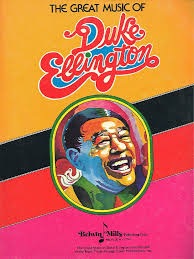
Juan Tizol (short biography)
Juan Tizol Martínez (22 January 1900 – 23 April 1984)[1] was a Puerto Rican jazz trombonist and composer. He is best known as a member of Duke Ellington’s big band, and for writing the jazz standards “Caravan”, “Pyramid”, and “Perdido”.
Juan Tizol was born on January 22, 1900 in the city of Vega Baja, Puerto Rico, into an illustrious family. The impact of the Tizols on the island is confirmed by several streets and squares that bear the name of eminent members of the lineage: doctors, politicians and musicians. In this last section is Manuel Tizol Márquez.
Come join us now, and enjoy playing your beloved music and browse through great scores of every level and styles!
Can’t find the songbook you’re looking for? Please, email us at: sheetmusiclibrarypdf@gmail.com We’d like to help you!
Manuel Tizol is considered by respected musicologists as the main personality of instrumental music in Puerto Rico during the first half of the 20th century, both in the classical and popular genres. In the first section he founded the San Juan Concert Society , which had an orchestra capable of performing the repertoires of all the great European masters of classical music. In addition, he established and directed the first Puerto Rico Symphony Orchestra official . In the second field he formed a dance orchestra and led the San Juan Municipal Band . With both groups he made recordings for the Columbia and Victor labels , becoming one of the pioneering national artists in the recording industry.
Manuel Tizol was Juan Tizol ‘s uncle and he took care of his musical training. He taught him to play the violin and euphonium, as well as to read and write music. From the age of 10, Juan was a member of his uncle’s dance orchestra, playing the violin or euphonium at all types of social events.
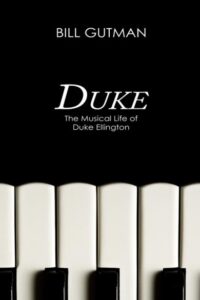
Please, subscribe to our Library.
If you are already a subscriber, please, check our NEW SCORES’ page every month for new sheet music. THANK YOU!
Around 1916, a German orchestra visited Puerto Rico and it is very possible that Juan Tizol heard a piston trombone played by a musician for the first time. Whatever the case, at that time it is documented that Juan played the aforementioned instrument in the orchestra of the Old San Juan Teatro Apolo .
In 1920, Juan Tizol was part of a band made up entirely of Puerto Rican musicians with the aim of touring the US. Once they arrived in Washington they were hired by the Howard Theater to play at the shows and to accompany the bands. silent movies Once they ran out of this work, the band disbanded.
Juan Tizol remained in Washington and there were several bands that required his services. One of them was the White Brothers’ Band , whose members included trumpeter Arthur Whetsol . This musician was the one who told Duke Ellington about Juan Tizol . The result was that he hired him for his orchestra. It was the year 1929 .
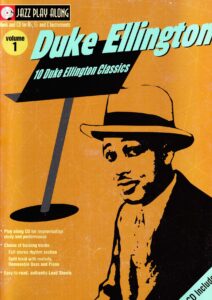
The first thing Duke Ellington did when Juan Tizol joined his orchestra was to name him “ chief copyist . ‘s music into sheet music ” He was in charge of transcribing Duke . The trumpeter, Rex Stewart , summed it up this way:
“ Tizol ‘s orchestra was an important wheel in the gear that moved Duke . He had to transcribe into sheet music the ideas that his boss tried to make clear. This was not an easy job since there were times when these avant-garde concepts could not be written. Tizol then wrote a kind of sketch and later spent hours trying to faithfully interpret what the “boss” had tried to explain to him and translate it into a score.”
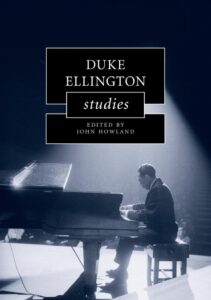
In 1933, musicologist HA Overstreet stayed with the Ellington Orchestra on one of its tours. As a result of his observations he wrote a book titled The Duke Reader in 1995. And among other things he says:
“…Juan Tizol had been busy writing the score for each musician’s arrangement of the trombone, saxophone and trumpet sections. Sometimes indicating them schematically for later elaboration. This approximate score served as a reference to resolve the discussions, since these appeared several times, until the entire arrangement was completed. These arguments, which are politely called exchanges of ideas, were pure and simple arguments. ‘s scores When the arrangement was finished and Tizol went from schematic to definitive , Ellington detected any deviation from them in the event that a musician did not adhere to them.
The first recording that Juan Tizol made (except for Back and Tan , for the short of the same title) was September 16, 1929. In that session, four songs were performed, one of them being titled The Duke Steps Out composed by Duke Ellington , Johnny Hodges and Cootie Williams .
Juan Tizol ‘s orchestra has an important role in the history of jazz, but not as an instrumentalist in Duke Ellington , but as a composer while he was a member of it.
I will start by naming his composition Caravan, which according to his own words he had already written before leaving Puerto Rico.
Tizol initially failed to appreciate the commercial potential of his song to the point that he sold his rights to Irving Mills ‘s manager, – who, apart from being Duke Ellington owned his own music publishing company – for $25. When Caravan became a big seller, Mills gave Tizol a portion of his royalties.

‘s first recording Caravan was made by a combo called Barney Bigard & His Jazzopaters in which all its members were also members of the Ellington orchestra , including himself: Cootie Williams , trumpet; Juan Tizol , valve trombone; Barney Bigard, clarinet; Harry Carney , baritone sax; Duke Ellington , piano; Billy Taylor, double bass; Sonny Greer , drums. The recording was made on December 19, 1936.
Duke Ellington & His Orchestra: Caravan (1937)
Duke Ellington ‘s composition at the moment had no intention of recording Tizol , but its exotic rhythm led him to perform it at the Cotton Club . The club parades were broadcast on radio throughout the country and listeners were dazzled by the song. This led Ellington to record it with his orchestra and this happened on May 14, 1937: Rex Stewart , cornet; Wallace Jones , Cootie Williams , trumpets; Lawrence Brown , Tricky Sam Nanton , Juan Tizol , trombones; Barney Bigard , clarinet; Johnny Hodges , Otto Hardwick , alto saxes, Harry Carney , baritone sax; Duke Ellington , piano; Fred Guy , guitar; Hayes Alvis or Billy Taylor , double bass; Sonny Greer , drums.
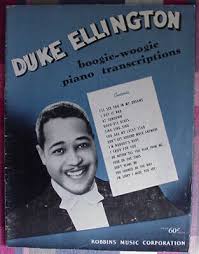
Caravan entered the top 20 and Duke Ellington kept it in the band’s repertoire until the rest of their days. recordings He left more than 100 Caravan . One of them a few weeks before his death.
It would be mid-1941 when several members of Duke Ellington ‘s orchestra were trying to find a jazz club in the alleys of New Orleans (where they had given a concert) and after kicking around for a while, Juan Tizol asked if anyone knew Where they were, one of the musicians answered that on Perdido Street (that’s how it is in Spanish). Tizol , whose native language was Spanish, smiled fangly when he realized that they were lost right on Perdido Street.
Duke Ellington – Perdido
The writer Stuart Nicholson relates in his book Reminiscing in Tempo: A portrait of Duke Ellington that Juan Tizol told him that he wrote a song while riding the train which he titled Perdido in reference to Perdido Street in New Orleans.
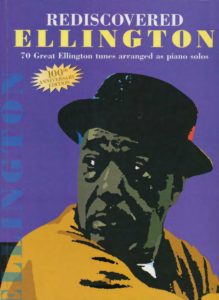
Perdido , given its harmonic structure, is one of the most used by jazz musicians of all eras and styles to perform in jam sessions .
band played it The first time the Ellington was in a radio program held on December 3, 1941. Almost two months later, on January 21, 1942, the aforementioned orchestra entered a Chicago studio where they recorded four songs. . One of them was Lost. When the single that contained it was released, it reached number 21 on the list of best-selling songs.
In all the books, essays, and articles about Juan Tizol, the confrontation he had with Charles Mingus always appears.
In February 1953, the double bassist joined Ellington ‘s band as a replacement. In the subsequent rehearsal, Juan Tizol gave him a sheet of music with the notes he had to play in a certain part of a song. When the time came Mingus ignored the score and played the notes an octave higher . This change infuriated Tizol and he went to the double bassist to tell him that if he wanted the double bass to sound like a cello he would have hired a cellist. A scuffle broke out between them, but it didn’t get any bigger.

However, Charles Mingus ‘s autobiography titled “ Less than a Dog” describes a completely different account of the confrontation. According to the double bassist , when Tizol addressed him, he blurted out: “You, like all blacks, don’t know how to read a score” (an absurd phrase when it comes to the Ellington orchestra) and also showed him a knife. Mingus did not give up and went to a wall where he grabbed a fire axe. Tizol ran away and then Mingus approached the chair where the trombonist was sitting and broke it in two with an ax blow.

‘s book When everything had calmed down, and according to Mingus , Ellington said to the double bassist: “For a moment I hoped that you had decided to start playing, but instead you broke Juan ‘s chair in two with a ax Seriously, Charles , that’s destructive. Everyone knows that Juan has a knife, but no one has taken him seriously. He likes to take it out and show it to people, you understand? I’ve never fired anyone, but you have to leave the band. I have enough problems already. Juan is an old problem, but I know how to handle him, but it seems that you have some new tricks that I don’t know about, so I am forced to ask you to be so kind and tender your resignation.
Charles Mingus ‘s band only lasted three days in Ellington . Scholars of jazz history give little credence to the account of the Tizol/Mingus incident as it appears in the double bassist’s book.
Juan Tizol left the Ellington Orchestra in 1944 because his wife, Rosebud , became ill and he wanted to spend more time with her at their home in Los Angeles. At that time, Harry James had his center of activities in that city and offered the trombonist a position in his orchestra, which he accepted. In the end the musical relationship between James and Tizol lasted until 1951. During that time they recorded several albums together. One of the songs was a composition written by both of them titled Keb-Lah and arranged by Tizol (which has a Caravan feel to it ). The recording was on July 5, 1946.

That same year, 1951, Juan Tizol ‘s band returned to his position in Ellington , and it was for a reason that the latter tells it this way in his book “Music is my Lover” from 1973:
“In 1951, Johnny Hodges , Lawrence Brown and Sonny Greer left the band at the same time. Shortly after, I traveled to Los Angeles and received a call from the Tizols : “Come have dinner with us.” At his house Tizol told me: “All you have to do is ask us and Louis Bellson , Willie Smith and I will leave Harry James to play with you.”
That was the solution they had in mind.
Naturally I was worried about who it might affect and who might be offended by something like that, since I had never had the habit of stealing musicians from other orchestras, but the situation at that moment was a real emergency. The truth is that that sounded too good to be true. If I had been talking to people I didn’t know I would have suspected that they were setting me up of some kind, but I knew Tizol and Rosebud perfectly well . In addition to having Juan Tizol again , Willie Smith was the best alto saxophone player in the world and everyone said the same about drummer Louis Bellson.
We put the plan in motion and everything went well.”
This second stage of Tizol with Ellington lasted three years, after which the trombonist settled on the North American West Coast where he remained until the end of his days. He made sporadic appearances live and in recording studios with the Harry James , Nelson Riddle and Louis Bellson orchestras . There was a third stage of Tizol with Ellington in the 60s and 61s in which he participated in some record recordings.
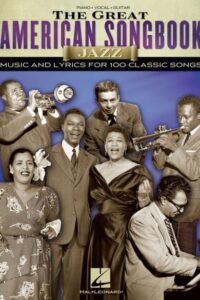
Juan Tizol left this world on April 23, 1984 in the city of Inglewood, California, two years after losing his wife Rosebud.
Please, subscribe to our Library.
If you are already a subscriber, please, check our NEW SCORES’ page every month for new sheet music. THANK YOU!
According to Will Friedwald, Frank Sinatra’s biographer, Tizol was in fact the first prominent orchestral composer to fuse Latin Music with Big Band Jazz Music.

To demonstrate that the musicians of Ellington’s orchestra, and he himself, learned very well the lessons on hot Latin rhythms that Juan Tizol taught them, I leave you the song composed by the trombonist titled Moon over Cuba and that Ellington and his boys recorded on July 2, 1941 in Hollywood.
Moon Over Cuba (1999 Remastered)
Duke Ellington and His Famous Orchestra.
Personnel:
Trombone: Joe Nanton Trombone: Lawrence Brown Trombone, Composer: Juan Tizol Clarinet, Tenor Saxophone: Barney Bigard Alto Saxophone, Clarinet: Johnny Hodges Alto Saxophone: Otto Hardwick Tenor Saxophone: Ben Webster Alto Saxophone, Baritone Saxophone, Clarinet: Harry Carney Piano, Composer: Duke Ellington Guitar: Fred Guy Bass: Jimmie Blanton Drums: Sonny Greer.
Juan Tizol Discography (on Wikipedia)
As sideman
With Louis Bellson
Journey Into Love (Norgran, 1954)
Drumorama! (Verve, 1957)
Music, Romance and Especially Love (Verve, 1957)
The Brilliant Bellson Sound (Verve, 1960)
Louis Bellson Swings Jule Styne (Verve, 1960)
Live in Stereo June 28, 1959, at the Flamingo Hotel Vol. 1 (Jazz Hour, 1992)With Duke Ellington
Ellington Uptown (Columbia, 1951)
Ellington '55 (Capitol, 1954)
Seattle Concert (RCA Victor, 1954)
Ellington Showcase (Capitol, 1956)
Liberian Suite and a Tone Parallel to Harlem (Columbia, 1956)
Piano in the Background (Columbia, 1960)
Selections from Peer Gynt Suites Nos. 1 & 2 and Suite Thursday (Columbia, 1960)
The Nutcracker Suite (Columbia, 1960)
Paris Blues (United Artists, 1961)With Harry James
Dancing in Person with Harry James at the Hollywood Palladium (Columbia, 1954)
Soft Lights, Sweet Trumpet (Columbia, 1954)
Harry James in Hi-fi (Capitol, 1955)
Jazz Session (Columbia, 1955)
Juke Box Jamboree (Columbia, 1955)
More Harry James in Hi-fi (Capitol, 1956)
Requests On-the-Road (MGM, 1962)With others
Count Basie, First Time! The Count Meets the Duke (Columbia, 1962)
Benny Carter, Cosmopolite (Norgran, 1954)
Nat King Cole, After Midnight (Capitol, 1956)
Nat King Cole, The Piano Style of Nat King Cole (Capitol, 1956)
Maxwell Davis, Compositions of Duke Ellington and Others (Crown, 1960)
Ella Fitzgerald, Get Happy! (Verve, 1959)
Ella Fitzgerald, Ella Fitzgerald Sings the Irving Berlin Song Book Vol. 1 (Verve, 1960)
Peggy Lee, The Man I Love (Capitol, 1957)
Peggy Lee, Jump for Joy (Capitol, 1958)
Frank Sinatra, Frank Sinatra Sings for Only the Lonely (Capitol, 1958)Juan Tizol Discography (on the Discography of American Historical Recordings)
| Artist or Composer / Score name | Cover | List of Contents |
|---|---|---|
| Music Theory Book – Hiroaki Honshuku – Jazz Theory 1 & 2 | Theory I | |
| Music Theory For Dummies |
 |
|
| Music Theory For Guitar – An introduction to the essentials by Michael P. Wolfsohn |
 |
Music Theory For Guitar – An introduction to the essentials |
| Music Theory In Practice, Grade 3 (ABRSM Eric Taylor) |
 |
|
| Music Theory In Practice, Grade 4 (ABRSM Eric Taylor) |
 |
|
| Music Theory In Practice, Grade 5 (ABRSM Eric Taylor) |
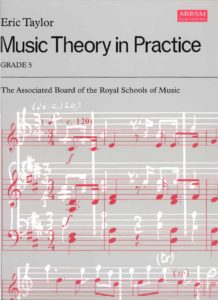 |
|
| Music Theory In Practice, Grade 6 (ABRSM Eric Taylor) |
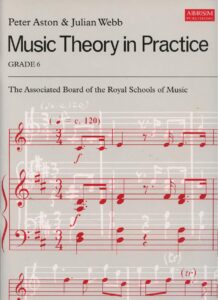 |
|
| Music Theory In Practice, Grade 7 (ABRSM Eric Taylor) |
 |
|
| Music Theory In Practice, Grade 8 (ABRSM Eric Taylor) |
 |
|
| Music Theory, All About – A Fun And Simple Guide To Understanding Music By Mark Harrison |
 |
Music Theory, All About – A Fun And Simple Guide To Understanding Music By Mark Harrison |
| Musica che resta (Il Volo) | ||
| Música Latinoamericana Para Guitarra: El condor pasa |
 |
|
| Musica Mexicana Para Guitarra Volumen Guitar TAB | Musica Mexicana Para Guitarra Guitar | |
| Música Para Todos – Recursos humanos para músicos (Español-Spanish) Book |
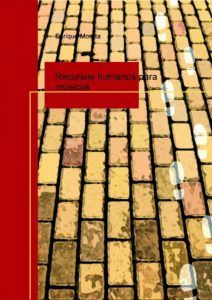 |
|
| Musical Instruments A Ladybird Book Of (1970) By De Ann Rees (Author), Robert Ayton (Illustrator) Book |
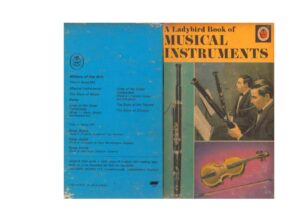 |
|
| Musicals, The – Complete Keyboard Player Musicals |
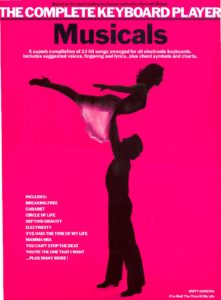 |
Musicals – Complete Keyboard Player Musicals, The |
| Musicians Institute – Harmony & Theory by Keith Wyatt & Carl Schroeder |
 |
|
| Musicians Institute Guitar Licktionary (eBook) |
 |
|
| Mussorgsky Pictures at an exhibition (Piano Solo arr.) | Mussorgsky Pictures at an exhibition (Piano Solo arr.) | |
| My Chemical Romance – Cancer | ||
| My Chemical Romance – Disenchanted | ||
| My Chemical Romance – Helena | ||
| My Chemical Romance – Im Not Okay | ||
| My Chemical Romance – Teenagers | ||
| My Chemical Romance – The Sharpest Lives | ||
| My Edward and I – Jane Eyre OST (Dario Marianelli) | ||
| My Fair Lady Easy Piano Broadway SongBook |
 |
My Fair Lady Easy Piano Broadway SongBook |
| My Favorite Things (Jazz Standard) Guitar Tablature TABs |
 |
|
| My Favorite Things (Musescore File).mscz | ||
| My Favorite Things (performed by Yohan Kim) |
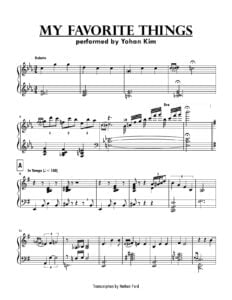 |
|
| My first Schubert – Mi Primer Schubert Easy Piano |
 |
My first Schubert -Mi Primer Schubert Easy Piano |
| My Foolish Heart – As Played By Bill Evans (Musescore File).mscz | ||
| My Funny Valentine – Jazz Standard Lead Sheet Music (Musescore File).mscz | ||
| My heart will go on (Celine Dion) | ||
| My Ideal Richard A. Whiting And Newell Chase Leo Robin In The Film “playboy Of Paris”, 1930 Jazz Standard (Vintage sheet music) |
 |
|
| My Immortal (Evanescence) | ||
| My love is like a red red rose (2 diff. versions by Arthur Foote and Bill Douglas) Piano & voice | My love is like a red, red rose (2) | |
| My New Philosophy by Andrew Lippa from You’re good man, Charlie Brown | My New Philosophy by Andrew Lippa from You’re good man, Charlie Brown | |
| My One And Only Love (Guy Wood, Robert Mellin) Jazz Piano Solo arr. sheet music |
 |
|
| My precious one (Celine Dion) | ||
| My Song – Keith Jarrett (Musescore File).mscz | ||
| My Way – Claude François & Jacques Revaux (Piano solo) |
 |
|
| My Way – Claude François & Jacques Revaux (Piano Solo) (Musescore File).mscz | ||
| My Way – Piano Solo (Sheet Music) Frank Sinatra version | My Way – Piano Solo Sheet Music | |
| My Way Guitar solo |
 |
|
| My Way piano vocal guitar chords sheet music |
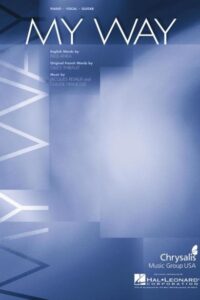 |
My Way piano vocal guitar chords sheet music |
| Mystery Train Piano Vocal (as recorded by Elvis Presley) by Sam C. Phillips and Herman Parker Jr. | Mystery Train Piano Vocal (as recorded by Elvis Presley) by Sam C. Phillips and Herman Parker Jr. 1st page | |
| N Sync – Bye Bye Bye | ||
| N Sync – This I Promise You | ||
| Nachum Heiman – Hofim (Guitar) | Nachum Heiman – Hofim (Guitar) | |
| Nachum Heiman – Hofim (Guitar).mscz | ||
| Nachum Heiman – The Jesus Film (Easy Piano solo arr.) | Nachum Heiman – The Jesus Film (Easy Piano solo arr.) | |
| Nachum Heiman – The Jesus Film (Easy Piano solo arr.).mscz | ||
| Nana Mouskouri – Livre D’or |
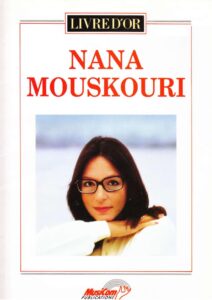 |
Nana Mouskouri – Livre D’or |
| Nanpa Hong 홍난파 고향의 봄 Spring In My Hometown (Piano Solo) |
 |
Nanpa Hong 홍난파 고향의 봄 Spring In My Hometown (Piano Solo) |
| Nanpa Hong 홍난파 – 고향의 봄 Spring In My Hometown (Piano Solo) (Musescore File).mscz | ||
| Napoléon Coste – Le Livre D’or Du Guitarist |
 |
|
| Narciso J. Saul Boulevard San Jorge Tango Guitar Tabs |
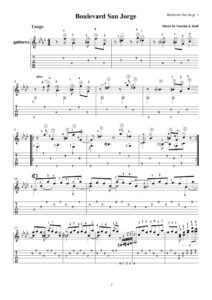 |
|
| Narciso Yepes The Finest Pieces from his repertoire Master Guitar |
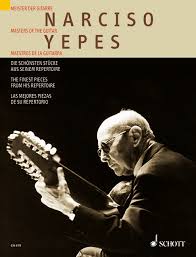 |
Narciso Yepes The Finest Pieces from his repertoire Master Guitar |
| Nardis – Miles Davis (Musescore File).mscz | ||
| Nardis (Musescore File).mscz | ||
| Nardis-Miles Davis With Bill Evans- (Musescore File).mscz | ||
| Naruto – Hokages Funeral (full Version) | ||
| Naruto – Hotaru no Hikari |
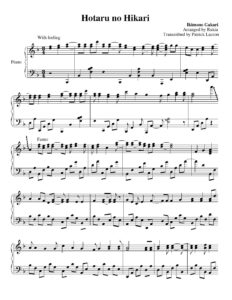 |
|
| Naruto – Wind |
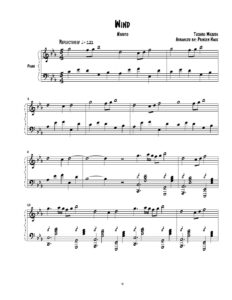 |
|
| Naruto Hokage’s Funeral – Naruto No Theme – Toshiro Maseda (Anime sheet music) |
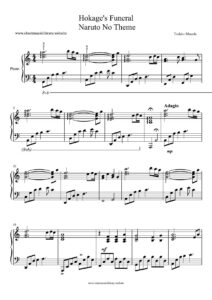 |
|
| Naruto Sadness And Sorrow Piano Solo by Toshiro Masuda | Naruto Sadness And Sorrow Piano Solo by Toshiro Masuda | |
| Nat King Cole – Easy Listenin’ Blues (piano sheet music) | Nat King Cole – Easy Listenin’ Blues (piano sheet music) | |
| Nat King Cole – Easy Listenin’ Blues (Piano Sheet Music) (Musescore File).mscz | ||
| Nat King Cole – Golden Greats |
 |
Nat King Cole – Golden Greats |
| Nat King Cole I’m in the mood for love | I’m in the mood for love | |
| Nat King Cole Lush Life Sheet Music |
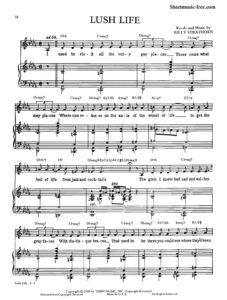 |
|
| Nat King Cole Smile (by Turner, Parsons and Chaplin) Piano Vocal Guitar chords |
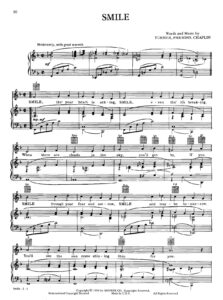 |
|
| Nat King Cole Song Album Of Recorded Hits |
 |
Nat King Cole Song Album Of Recorded Hits |
| Nat King Cole Unforgettable Piano, Vocal, Guitar Chords Legendary Performers Volume 9 |
 |
Nat King Cole Songbook |
| Natalie Imbruglia – Torn | ||
| Natasha Bedingfield – Love Like This | ||
| Natasha Pierre The Great Comet Of 1812 Vocal Selections of Te Musical |
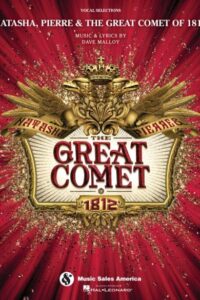 |
Natasha Pierre The Great Comet Of 1812 Vocal Selections of Te Musical |
| Nature Boy (Eden Ahbez) | ||
| Nausicaa of the valley of the wind | Nausicaa of the valley of the wind | |
| Navone, G. – 4 Composizioni Minuetto Preludio Pianto d un Bambino Preludio |
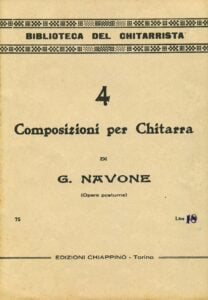 |
|
| Ne – Yo – Because Of You | ||
| Ne – Yo – Sexy Love | ||
| Ne – Yo – So Sick | ||
| Neat Feet (Musescore File).mscz | ||
| Ned Rorem Cycle Of Holy Songs For Voice And Piano |
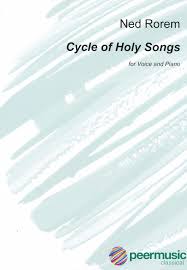 |
|
| Ned Rorem Early In The Morning | Ned Rorem Early In The Morning | |
| Ned Rorem String Quartet No. 4 |
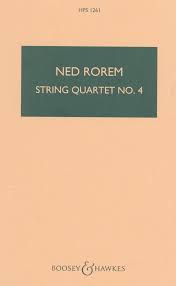 |
|
| Negro Spiritual Songbook Hayes 10 Spirituals For Solo Voice Med High Voice | Negro Spiritual Songbook Hayes 10 Spirituals For Solo Voice | |
| Nei giardini che nessuno sa (Renato Zero) | ||
| Neil Diamond The Essential Neil Diamond |
 |
 |
| Neil Diamond – He Ain’t Heavy He’s My Brother |
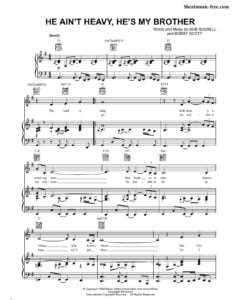 |
|
| Neil Diamond – Hello Again |
 |
|
| Neil Diamond 12 Greatest Hits Vol II |
 |
|
| Neil Diamond Anthology Second Edition Easy Guitar |
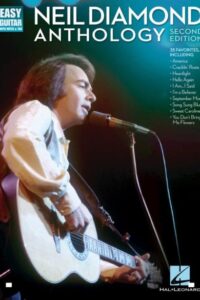 |
Neil Diamond Anthology Second Edition Easy Guitar |
| Neil Diamond Easy Piano Collection 2nd Edition |
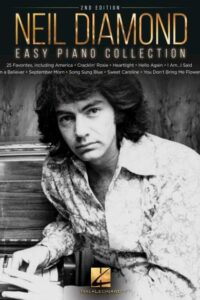 |
Neil Diamond Easy Piano Collection 2nd Edition |
| Neil Diamond September Morn |
 |
|
| Neil Gooding Back to the 80s (The awesome Musical) |
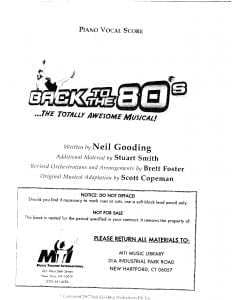 |
|
| Neil Sedaka – Breaking Up Is Hard To Do | ||
| Neil Young – Crazy Horse LIVE RUST 16 songs from the Movie Soundtrack |
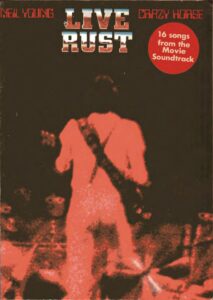 |
Neil Young – Crazy Horse LIVE RUST 16 songs from the Movie Soundtrack |
| Neil Young – The Best of Neil Young (Piano,Guitar & Voice Songbook) |
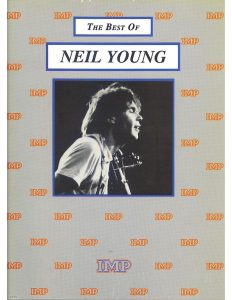 |
Neil Young – The Best of Neil Young |
| Neil Young After The Goldrush SongBook |
 |
Neil Young After The Goldrush Book |
| Neil Young Decade SongBook |
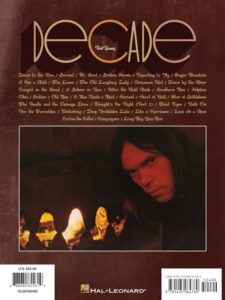 |
Neil Young Decade Book |
| Neil Young Greatest Hits Guitar Tab |
 |
Neil Young Greatest Hits Guitar Tab |
| Neil Young guitar anthology with Tablature |
 |
Neil Young guitar anthology |
| Nel cuore nell anima (Battisti) | ||
| Nelly Furtado – All Good Things | ||
| Nelly Furtado – Im Like A Bird | ||
| Neo Soul Guitar Book complete guide y Mark Lettieri Simon Pratt Kristof Neyens |
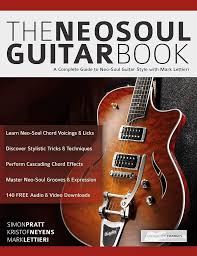 |
Neo Soul Guitar Book complete guide y Mark Lettieri Simon Pratt Kristof Neyens |
| Neon Genesis Evangelion – Fly Me To The Moon | Neon Genesis Evangelion – Fly Me to the Moon | |
| Nessun Dorma (Musescore File).mscz | ||
| Nettles And Graf The Chord Scale Theory & Jazz Harmony Advanced Music |
 |
|
| New Age Piano Made Easy – Edward Weiss |
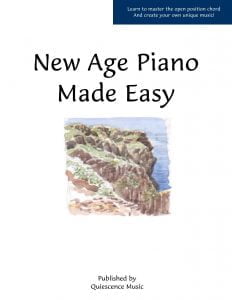 |
New age piano Edward Weiss |
| New Age Piano Techniques 1 |
 |
|
| New Age Solos Ultimate Piano Solos 39 of the best contemporary instrumentals |
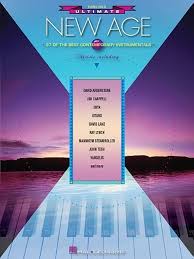 |
New Age Solos Ultimate Piano Solos 39 of the best contemporary instrumentals |
| New Born- Muse (Musescore File).mscz | ||
| New Ears For New Music Constantin Floros Kenneth Chalmers (Book) |
 |
|
| New Italian American Songbook, The Big Italian Hits made popular in America 2nd Edition Piano Vocal Guitar |
 |
New Italian American Songbook, The Big Italian Hits made popular in America 2nd Edition Piano Vocal Guitar |
| New Orleans Jazz Piano Solos Jazz Piano Solos Series volume 21 |
 |
New Orleans Jazz Piano Solos Jazz Piano Solos Series volume 21 |
| New Orleans RHYTHM & BLUES, The History of (Book) |
 |
|
| New Standards, The 64 Popular Modern Solos Piano Vocal Guitar chords |
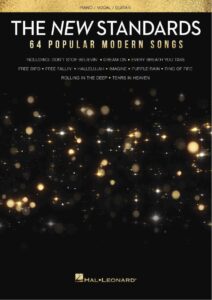 |
New Standards, The 64 Popular Modern Solos Piano Vocal Guitar chords |
| New World (Björk) | ||
| New York New York (Piano) |
 |
|
| New York State of Mind (Billy Joel) Jazz Piano Solo arr. sheet music |
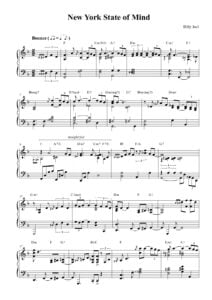 |
|
| New York Tango For Accordion By Richard Galliano | New York Tango For Accordion By Richard Galliano | |
| New York, New York John Kander Fred Ebb Jazz Standard arr. Carsten Gerlitz |
 |
|
| Newsies (Disney Musical) Piano Vocal Conductor score |
 |
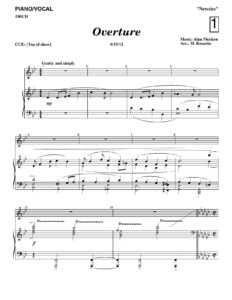 |
| Newsies Disney From The Broadway Musical Piano Vocal Selections |
 |
Newsies Disney From The Broadway Musical Piano Vocal Selections |
| Newsies JR Disney Musical Junior piano vocal score Conductor Score |
 |
Newsies JR Disney Musical Junior piano vocal score Conductor Score |
| Nicholas Britell – Succession HBO TV Series (Advanced Piano Solo Arr.) | Nicholas Britell – Succession HBO TV Series (Advanced Piano Solo Arr.) | |
| Nicholas Britell – Succession HBO TV Series (Piano Solo arr.).mscz | ||
| Nicholas Britell – Succession Main Theme Easy Piano Solo Arr |
 |
|
| Nicholas Britell – Succession Main Theme HBO TV Series Easy Piano Solo arr.mscz | ||
| Nick Cave Anthology Songbook |
 |
Nick Cave Anthology Songbook |
| Nick Cave Idiot Prayer Nick Cave Alone At Alexandra Palace Piano Vocal Guitar |
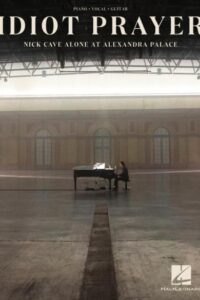 |
Nick Cave Idiot Prayer Nick Cave Alone At Alexandra Palaceed |
| Nick Drake Man In A Shed Guitar Tabs | Nick Drake Man In A Shed Guitar Tabs | |
| Nick Drake One Of These Things First Guitar Tabs | Nick Drake One Of These Things First Guitar Tabs | |
| Nick Drake Pink Moon Guitar Tabs | Nick Drake Pink Moon Guitar Tabs | |
| Nick Drake Things Behind The Sun Guitar Tabs | Nick Drake Things Behind The Sun Guitar Tabs | |
| Nick Lucas Chord Rhythm And Fill In Book For Guitar |
 |
Nick Lucas Chord Rhythm And Fill In Book For Guitar |
| Nick Lucas Keystone Folio For Guitar Plectrum Style | Nick Lucas Keystone Folio For Guitar Plectrum Style | |
| Nick Lucas Plectrum Guitar Method Volume 1 |
 |
Nick Lucas Plectrum Guitar Method Volume 1 |
| Nickel Creek Transcribed Scores Piano Vocal guitar TAB |
 |
|
| Nickelback – How You Remind Me | ||
| Nickelback – Rockstar | ||
| Nickelback All The Right Reasons Guitar Songbook With Tablature |
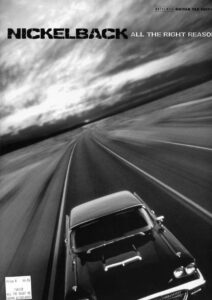 |
Nickelback All The Right Reasons Guitar Songbook With Tablature |
| Nickelback The Long Road Songbook Guitar TABs |
 |
Nickelback The Long Road Songbook Guitar TABs |
| Nico Rojas Lay y Egues Guitar Notation With Tablature | Nico Rojas Lay y Egues Guitar Notation With Tablature | |
| Nicolas Slonimsky Thesaurus Of Scales And Melodic Patterns |
 |
|
| Nicolas Slonimsky Writings On Music Russian And Soviet Music (Book) |
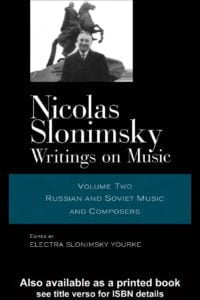 |
